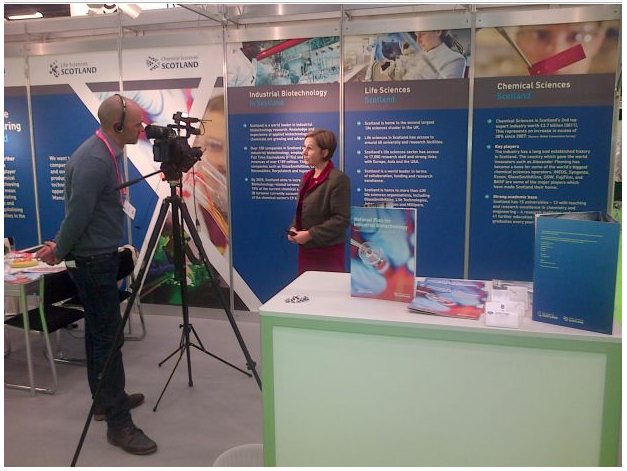I am catching up on some of my blog drafts since October 2013 while there seems to be a lull in renewable chemicals news this month.
This one was announced by Scotland’s main economic development agency, Scottish Enterprise, while I was at the Ecochem conference in Basel, Switzerland, in November last year. Scotland is laying out financing for its growing industrial biotechnology sector. The project called “The National Plan for Industrial Biotechnology – Towards a Greener, Cleaner 2025” aims to increase existing industrial biotechnology turnover from £189 million last year to £900 million by 2025.
During Ecochem, I moderated a panel where Scottish Enterprise’s head of chemical sciences, Caroline Strain, talked about the strategies of the chemical sciences industry in Scotland in terms of sustainable manufacturing in the country.
Scotland is said to be currently home to over 40 companies actively involved in industrial biotechnology prokects. The Scottish Enterprise aims to position Scotland as an international hub for industrial biotechnology (IB) by helping to increase awareness and uptake of technologies; address skills shortages/barriers to developing IB; scope out the potential of biorefinery/biochemical facilities to make them a reality; and putting up innovation centers to position Scotland as a leading hub for IB innovation.
According to Scottish Enterprise, the global IB market is estimated at £150 billion to £360 billion by 2015. Estimates for the UK IB market range from £4 billion to £12 billion. Some of the industrial biotechnology companies already residing in the region include Ingenza, Celtic Renewables, Ineos, and ThyssenKrupp. As of 2013, there are about 43 companies in Scotland that are actively involved in IB. The aim is to increase this number to 200 companies by 2025.
Scotland currently has no test, demo or scale-up facilities, which Scottish Enterprise said limits the opportunity for companies to develop and validate commercial-scale production processes.





